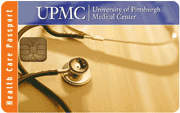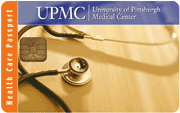New Jersey lawmakers consider new identity documents for Medicaid
Credentials could prevent millions in fraud
31 March, 2014
category: Government, Health, Library, Smart Cards
New Jersey lawmakers are considering legislation that would issue USB drives with embedded smart card technology as identity documents to Medicaid recipients.
The bill is designed to put a dent in rampant fraud that costs American taxpayers billions of dollars annually, and supporters say it could lead to more eligible residents receiving Medicaid.
If the project is approved, pilot participants would use of a USB device as an identity document. This drive would contain their identifying information and medical records, with lawmakers reviewing the results in two-years time.
“It will free up money to actually go to the health care as opposed to feeding the fraud system,” says Democratic Assemblyman Tim Eustace, one of the bill’s sponsors.
Eustace, a chiropractor, thinks his own business would benefit from the smart card approach. “We’ll be able to verify that the patient is exactly who they say they are after just a momentary verification of benefits,” says Eustace.“Before, my staff would sit on the phone waiting for Medicaid to verify that the person had benefits, which ended up costing money.”
Instead of the plastic Medicaid cards they currently carry, patients would carry a USB flash drive containing medical information and a photograph. To prove their identity and provide offices with instant access to their medical records, the user would present the token and provide a PIN.
“It would prevent fraud on both ends,” says Eustace. “The doctor would actually be providing services to the correct patient, and the patient would have to actually be the person who is approved for the services.”
Much of the fraud comes from people shopping for drugs through multiple doctors. Since all providers would eventually be linked to the system, this doctor shopping process would be much more difficult.
Eustace says the USB drive will help stop other groups, like hospitals and drug companies, from ripping off the system as well. Everything is recorded electronically, hopefully putting the brakes on those who over bill or provide services that aren’t approved.
Another sponsor, Democratic Assemblyman Herb Conaway Jr., suggested that biometric information – like the user’s fingerprint – could be included someday to cut down even further on fraud. For now, however, he just wants to see a reduction in cost per Medicaid recipient.
“Developing a more efficient system for Medicaid would preserve the integrity of the program and make it more accessible to those who truly need it,” says Conaway. “This pilot program would help us discover if and how we may improve the system.”
The cost of the pilot hasn’t been determined, but Eustace figures New Jersey taxpayers will save hundreds of millions of dollars in fraud reduction alone.
Supporters of the new proposal will have to sway skeptics concerned about user security. But Eustace says privacy laws have already changed the way doctor’s offices and hospitals do business. “You cannot get into the patient files without certain protocols,” he says. “The staff is trained not to release any of that information.”
The state health department would oversee the program and New Jersey’s Commissioner of Human Services would determine whether the two-year pilot is carried out statewide or only in designated areas.
“It’s hard to say no to saving money, and in health committees it was passed almost unanimously,” says Eustace. “It has a lot of bipartisan support.”




